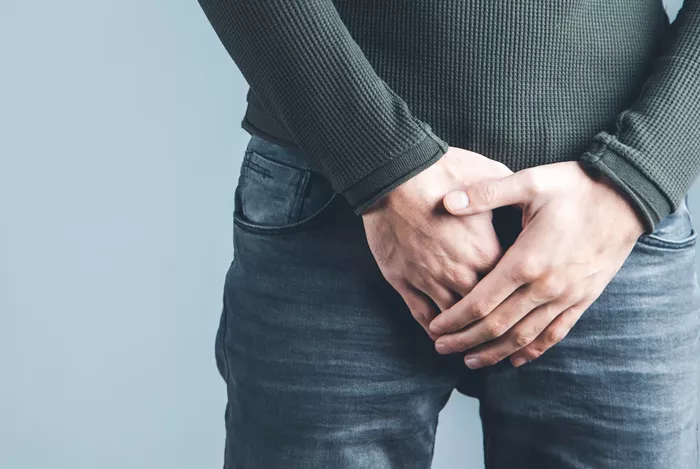Thrush, also known as oral candidiasis, is a fungal infection caused by an overgrowth of Candida yeast. Though often associated with women, men can also develop thrush, particularly in the mouth, throat, and genital areas. Understanding how to treat thrush is essential for maintaining good health. This article will outline the 10 best treatments to help men effectively manage thrush.
1. Antifungal Medications
The first line of treatment for thrush in men is antifungal medications. These can be taken orally or applied topically, depending on the severity and location of the infection. Common medications include fluconazole, clotrimazole, and nystatin. A doctor will determine the best option based on your symptoms.
2. Topical Creams and Ointments
For thrush affecting the skin or genital area, topical antifungal creams like clotrimazole, miconazole, or terbinafine can be highly effective. These creams help reduce fungal growth and soothe any irritation. Apply them as directed for several days to ensure complete recovery.
3. Probiotics
Probiotics, especially those containing Lactobacillus and Bifidobacterium, can help restore the balance of good bacteria in the body. Since Candida thrives in an imbalanced gut, consuming probiotics can promote a healthier environment and help prevent thrush from reoccurring. Probiotics can be taken in supplement form or found in foods like yogurt.
4. Salt Water Rinses
For oral thrush, a saltwater rinse can be a simple yet effective treatment. Salt has natural antifungal properties and helps reduce inflammation. Gargle with warm saltwater several times a day to help soothe the affected area and prevent further infection.
5. Gentle Oral Hygiene
Maintaining good oral hygiene is essential for preventing and treating oral thrush. Brush your teeth at least twice a day using a soft toothbrush, and avoid alcohol-based mouthwashes, which can irritate the infection. Regularly clean dentures or other oral appliances to avoid reinfection.
6. Tea Tree Oil
Tea tree oil is known for its antifungal and antiseptic properties. It can be used topically to treat thrush, but it must be diluted with a carrier oil to avoid irritation. Apply it to the affected area twice daily for effective results.
7. Dietary Changes
Diet plays a significant role in managing thrush. Men suffering from thrush should avoid sugar, refined carbs, and alcohol, which can feed Candida yeast. A diet rich in vegetables, lean proteins, and whole grains can help boost the immune system and restore balance in the body.
8. Hydration
Keeping the body hydrated is key to fighting off infections, including thrush. Drink plenty of water throughout the day to help flush out toxins and support your immune system. Staying hydrated also keeps the mucous membranes in your mouth and genital area moist, reducing irritation.
9. Antibiotics (Only When Necessary)
While antibiotics can sometimes trigger thrush by killing off good bacteria, they can also be used to treat the underlying infections that lead to thrush. If you develop thrush as a result of another bacterial infection, your doctor may prescribe antibiotics, but they should be used cautiously.
10. Lifestyle Modifications
Certain lifestyle changes can help reduce the risk of thrush. Managing stress, quitting smoking, and wearing loose-fitting, breathable underwear can all contribute to better immune health and reduce the likelihood of thrush outbreaks. Stress weakens the immune system, making the body more susceptible to fungal infections, while smoking and tight clothing create environments in which Candida can thrive.
FAQs
1. Can thrush spread through sexual contact?
Yes, thrush can be passed through sexual contact. Men can contract genital thrush from their partners, especially if the partner has an active infection. Using protection can help reduce the risk of transmission.
2. How long does it take to treat thrush?
The duration of treatment depends on the severity of the infection and the method used. Typically, antifungal treatments can clear the infection within 1-2 weeks. However, more severe cases may require longer treatment.
3. Can thrush come back after treatment?
Yes, thrush can recur if the underlying causes are not addressed. For instance, if you have an imbalance in your gut flora, or continue to consume sugar and alcohol, the infection may return. Preventative measures, like a healthy diet and regular use of antifungal creams, can help prevent relapse.
Conclusion
Thrush in men is a treatable condition, and with the right treatment, recovery is usually quick. Combining antifungal medications, proper hygiene, dietary adjustments, and lifestyle changes can help eliminate the infection and prevent future outbreaks. If symptoms persist or worsen, consult with a healthcare professional for further evaluation and treatment.
Related articles:
- 6 Best Ways To Get Rid Of Thrush Males
- Thrush in Men: A Clear Explanation
- The 5 Best Probiotics For Men & Women


